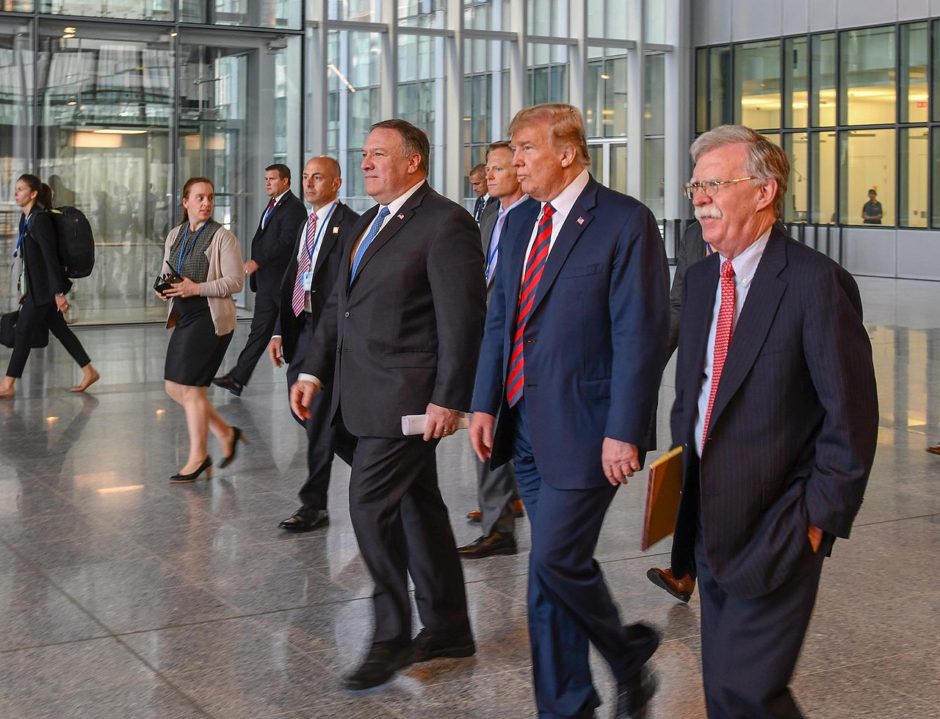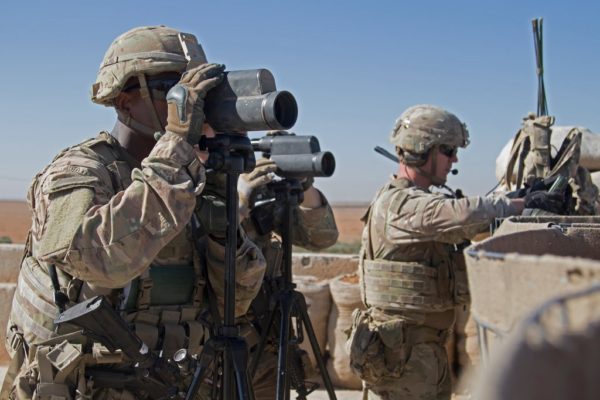
Less than a month after President Donald Trump abruptly announced the withdrawal of 2,000 U.S. troops from Syria within 30 days, the United States has adjusted its Syrian policy, much to Israel’s relief. Trump’s announcement on December 19 alarmed Israel, which feared that a precipitous U.S. pullout would leave a dangerous vacuum in Syria that Iran, Israel’s fiercest enemy, could exploit.
The American troops, based in northeastern and southeastern Syria, are in control of about one-third of Syrian territory. They perform a variety of functions — limiting Iran’s influence in Syria to some degree, blocking Iran’s land bridge through which it sends weapons and foreign Shi’a fighters to Syria and Lebanon, and exerting additional pressure on Islamic State by means of training, equipping and advising Kurdish fighters.

Trump, who made his snap decision after speaking to Turkish President Recep Tayyip Erdogan, claimed that Islamic State — the jihadist organization that once held vast swaths of territory in Syria and Iraq — had been decisively defeated after three years of warfare. “We’ve beaten them and we’ve beaten them badly,” he declared. “We’ve taken back the land. And now it’s time for our troops to come back home.”
Trump’s claim, which ran counter to credible reports that Islamic State still has about 30,000 battle-ready troops in the Middle East, caused widespread consternation in his administration. Secretary of Defence Jim Mattis resigned, saying Trump had committed a “strategic blunder.” And Washington’s envoy to the coalition of Arab, Muslim and European nations battling Islamic State, Brett McGurk, stepped down in protest as well.
As a result of the uproar, Trump lengthened the withdrawal deadline from one month to four months. On January 7, he tweeted, “We will be leaving (Syria) at a proper pace, while at the same time continuing to fight (Islamic State) and doing all else that is prudent and necessary.”
He issued this reassuring comment after rashly implying that he was indifferent to Iran’s effort to entrench itself militarily in Syria. “Iran is pulling people out of Syria,” he said without the slightest elaboration. “They can do what they want there, frankly, but they’re pulling people out.”
Trump went on to describe the current civil war in Syria in two words — “sand and death” — and failed to explain why an American military presence in Syria is strategically important to U.S. interests.
John Bolton, Trump’s national security advisor, said last September that American soldiers will not vacate their posts in Syria until Iranian soldiers leave the country. In particular, he was referring to the Al-Tanf base, which is near the Iraqi and Jordanian borders and sits astride the Baghdad- to- Damascus highway.
Analysts contend that a U.S. withdrawal from this base would encourage Iran to enlarge its already substantial network of Shiite fighters, who come from Afghanistan, Pakistan, Iraq and Syria, among other countries, and can be dispersed throughout the Middle East. In light of these factors, the United States may well remain in Al-Tanf after it withdraws troops from elsewhere in Syria.
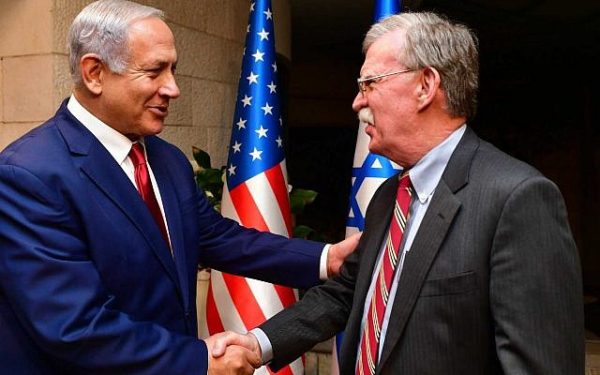
But as Bolton said during a visit to Israel a few days ago, U.S. forces will not be moved out of Syria until Islamic State has been completely uprooted from its last enclaves in the Middle Euphrates River Valley and Kurdish fighters in northern Syria, supported by the United States, are safe from Turkish attacks.
Turkey, which has branded the Kurdish fighters as terrorists, has indicated it will launch an offensive against the Kurds without Washington’s approval. “Very soon, we will take action to neutralize terrorist organizations in Syria,” said Erdogan, who refused to meet Bolton and his delegation in Ankara this week and sent his advisor, Ibrahim Kalin, in his place. “We have completed our preparations for the operation to a large extent.”
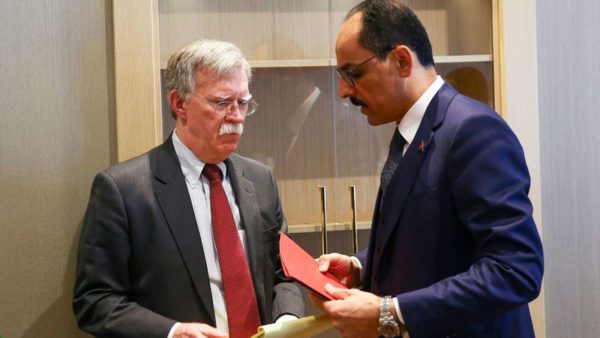
Bolton’s colleague, Secretary of State Mike Pompeo, has also outlined U.S. objectives in Syria. “The president is not ambiguous with respect to Syria,” he said. “Our troops are coming out.” But the campaign against Islamic State and Iran will continue, he added. “We will simply do it at a time when the American forces have departed Syria.”
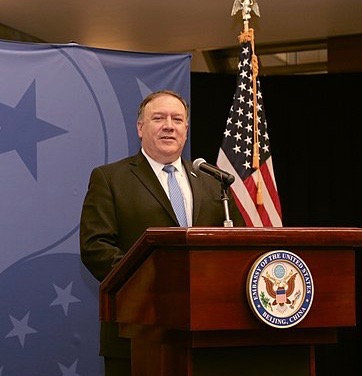
Pompeo told Prime Minister Benjamin Netanyahu that the planned U.S. withdrawal from Syria would not affect its commitment to thwart Iranians ambitions and maintain Israel’s security.
“The decision by the president on Syria in no way changes anything this administration is working on alongside Israel,” he said. “The counter-Islamic State campaign continues, our efforts to counter Iranian aggression continues, and our commitment to Middle East stability and the protection of Israel continues in the same way it did before (Trump’s) decision was made. We will work closely together to make sure we get this right.”
On January 10, during a tour of the Middle East aimed at forming an Arab front against Iran, Pompeo said the United States and its regional allies would use diplomatic means to try to expel all Iranian military personnel in Syria and ensure that Israel has the capacity to “defend itself against (Iran’s) aggressive adventurism.”
Before Pompeo’s current trip, Netanyahu said the United States “is acting against Iran at the economic level, and we here in Israel are acting against Iran at the military level.”
Ever since Iran sent an armed drone into northern Israel last February, the Israeli Air Force has carried out a succession of bombing raids against Iranian bases and installations in Syria. During this period, senior Iranian military figures have escalated their verbal threats against Israel.
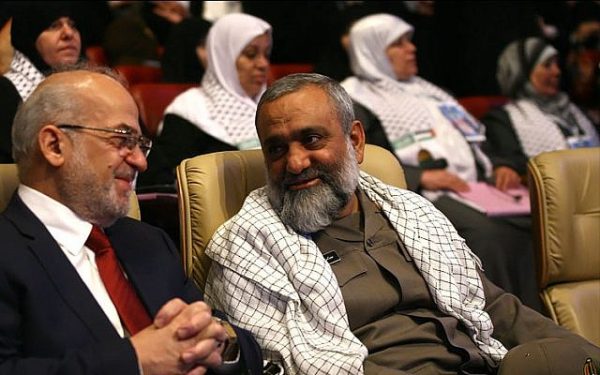
On January 10, in the latest Iranian volley directed at Israel, Mohammad Reza Naqdi, a deputy commander of the Islamic Revolutionary Guard Corps, said, “Israel must be destroyed and wiped out. There is no doubt that the Zionists must be annihilated and destroyed. This will definitely happen.” Iran will not “back down an inch” from this position, he added.
According to reports, U.S. troops in Iraq may be deployed against Iranian and Islamic State forces in Syria.
Iraq itself may play a role in Syria, Iraqi Prime Minister Adil Abdel-Mahdi has said. “If the United States withdraws from Syria, Iraq is fully prepared to cooperate with other security forces associated with the Syrian issue,” he said on December 30.
Syrian President Bashar al-Assad has reportedly allowed the Iraqi Air Force to bomb Islamic State bases in Syria without prior authorization from his government.
